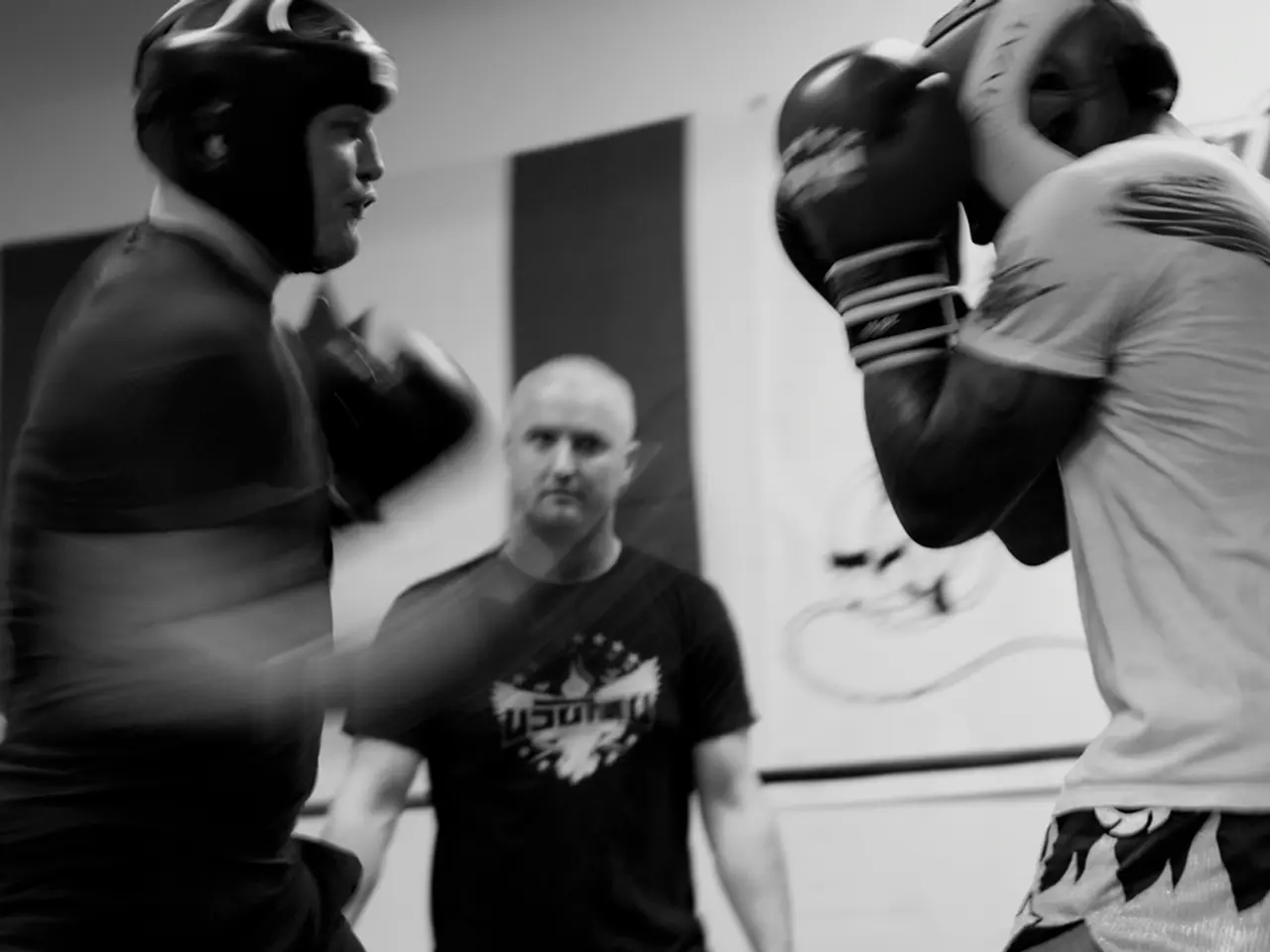Two pugilists competing on the same event tragically perish, a period described by the WBO as an extremely challenging one.
In a heartbreaking turn of events, two Japanese boxers, Shigetoshi Kotari and Hiromasa Urakawa, lost their lives due to injuries sustained during their respective title fights.
Shigetoshi Kotari, aged 28, passed away on Friday following a 12-round draw against the Oriental and Pacific Boxing Federation junior lightweight champion, Yamato Hata. Tragically, Kotari suffered from a subdural hematoma, a condition where blood collects between the brain and skull, and underwent emergency brain surgery. Despite the best efforts of medical professionals, he succumbed to his injuries.
The World Boxing Organization expressed their condolences for Kotari's death on social media, joining the global boxing community in mourning his loss.
The same unfortunate incident occurred on the same card as Hiromasa Urakawa's fight. Urakawa, also 28, died on Saturday after suffering the same injury during a knockout loss.
Japan's approach to brain injury in boxing is increasingly stringent, combining medical safety protocols and regulatory reforms with international trends emphasizing protective gear and concussion management. Key safety measures recently implemented include automatic retirement of boxers who undergo craniotomy due to brain injuries, introduction of urine tests and stricter rules on weight loss, and improvements in medical coverage during bouts.
However, the prevention of brain injuries in boxing remains a complex issue. While protective equipment like headguards and mouthguards are used, their effectiveness in preventing concussions or Chronic Traumatic Encephalopathy (CTE) remains limited. Emerging protective technologies like the Halos® sports headband have shown promise, with reductions in concussion risk by up to 74% and potential reductions in rotational/linear force to the brain.
The emphasis is also on recognition and proper management of concussions, including enforced removal from competition and adherence to return-to-play protocols. Rule changes in combat sports are being implemented to reduce head impacts by modifying techniques and enforcing stricter penalties on dangerous actions.
The incidents at Tokyo's Korakuen Hall on August 2 serve as a stark reminder of the dangers inherent in boxing and the ongoing need for continuous improvement in safety measures and prevention strategies. The boxing community mourns the loss of Kotari and Urakawa and stands united in the pursuit of a safer sport for all.
Sports have experienced a profound loss with the unfortunate demise of two Japanese boxers, Shigetoshi Kotari and Hiromasa Urakawa, who died due to injuries sustained during their respective title fights. Despite Japan's stringent approach to brain injury in boxing, which includes safety measures, regulatory reforms, and the use of protective gear, the prevention of such injuries remains a complex issue.








